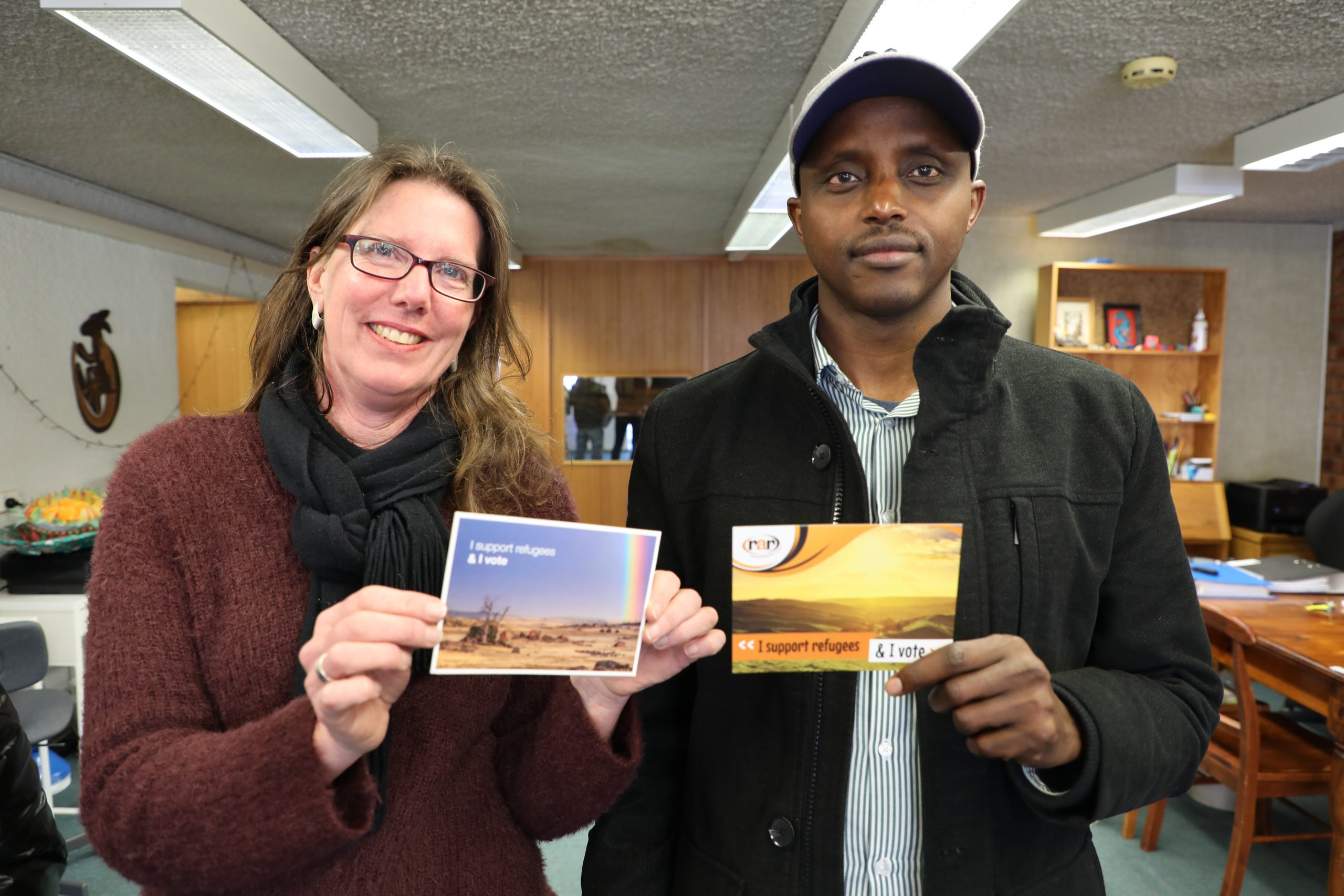News
Q&A: Great Lakes Agency for Peace and Development
In September 2019, VFFF approved $305,000 in core operational support to Great Lakes Agency for Peace and Development (GLAPD) for their work assisting refugees and migrants to resettle in rural and regional areas.
By the time we met Emmanuel Musoni and the GLAPD team, they had already supported 138 people to resettle with jobs in rural communities in NSW, QLD and Victoria, with almost no funding. This was off the back of an Australian Story episode that showcased their unique, community-focused approach.
Despite the travel and social restrictions of COVID-19, GLAPD has continued successfully resettling families from the city to the country, connecting them with employment and working closely with regional communities to ensure they are ready to welcome new community members.
We caught up with Emmanuel in August to chat about the resettlement program.

VFFF: Why did you start the regional resettlement program?
Emmanuel: We started the program because refugees from African backgrounds wanted to live and work in regional areas, as they were living in confined city suburbs with no knowledge of how to get back to a regional lifestyle. Some of them wanted to practice farming again so they could reconnect to a peaceful past, before the wars drove them out of their hometowns/villages. Others wanted to move because of the high cost of living in cities, congestion and pollution, and long-term unemployment.
What would you say to rural and regional Australians who are thinking about welcoming migrants/refugees into their communities?
That migrants and refugees are resilient people, hardworking, with good attitudes and they deserve a welcoming hand and voice, regardless of their skin colour, religion, race or culture. Also, that migrants and refugees will reinvigorate their towns and communities demographically, economically, and socially. I have authored a few major reports on how to welcome refugees and migrants which can be viewed here and here.
What’s your favourite story from a family or individual you have helped resettle in a rural or regional area?
My favourite story is about a lady who came to Australia from India 7 years ago as a skilled migrant. Back home she was a teacher of Mathematics and that is what enabled her to get a migrant visa to Australia. She arrived in Australia in full hope of getting a job in education and continue her much loved work. But to her surprise, when she applied for teaching jobs in Sydney, she was told that she had to have five years teaching experience in Australia.
But the big elephant in the house was, how was she supposed to accumulate five years of teaching experience in Australia when she was not allowed to teach a single day in Australia?
When she and her husband came to my office, she seemed desperate, with no hope of regaining employment in the teaching industry.
I told her that I could only try to help through good people in regional towns, if she and her husband were prepared to move to regional areas. In one month, they were ready to move with other families from their community.
I spoke to one of my contacts in the Cooma community group and suggested we reach out to private schools who may be willing to give her some casual teaching work. A local Cooma community member agreed to connect her to a retired principal of a private school, and in a wink of an eye, she was employed on casual basis and she was incredibly happy.
After one year of casual teaching practice, she applied to the NSW Department of Education for a teaching licence and she was granted it after six months. The day she received her licence, she called me in huge jubilation and celebration of this achievement for her family.
Such stories and many more in my journey of settlement are the major reasons I keep doing what I do.
What has been the impact of the funding from VFFF & The Yulgilbar Foundation?
This funding has made our organisation grow exponentially. We are able to pay the salary of three staff members working for this program, and we rented a new spacious office that has been a place of sanctuary for many refugees who are seeking support, especially during COVID-19.
For example, between June and August we had 389 clients coming through our doors for services including food support. We have resettled 61 people in regional areas because of this funding in the first half of the funding period. Secondary employment for women and children of the resettled families has increased big time, thanks to the funding that has enabled us to engage with more regional employers.
What have you learnt on this journey?
I have learnt to put myself into the shoes of others whilst serving them. Because ordinary things for you are not necessarily ordinary for everyone, so it is important to listen and act appropriately without prejudice, neglect, distinction, or discrimination.
What is your vision for the future?
To create and grow more regional communities by sustainably settling families in regional areas through finding employment, farming opportunities and a country lifestyle to refugees and migrants while opening up the program to everyone. While resettling migrants and refugees, regional communities will benefit population growth to fill the labour gaps in regional industry, grow numbers in schools, and churches and a harmonious integration of diverse cultures in regional Australia.